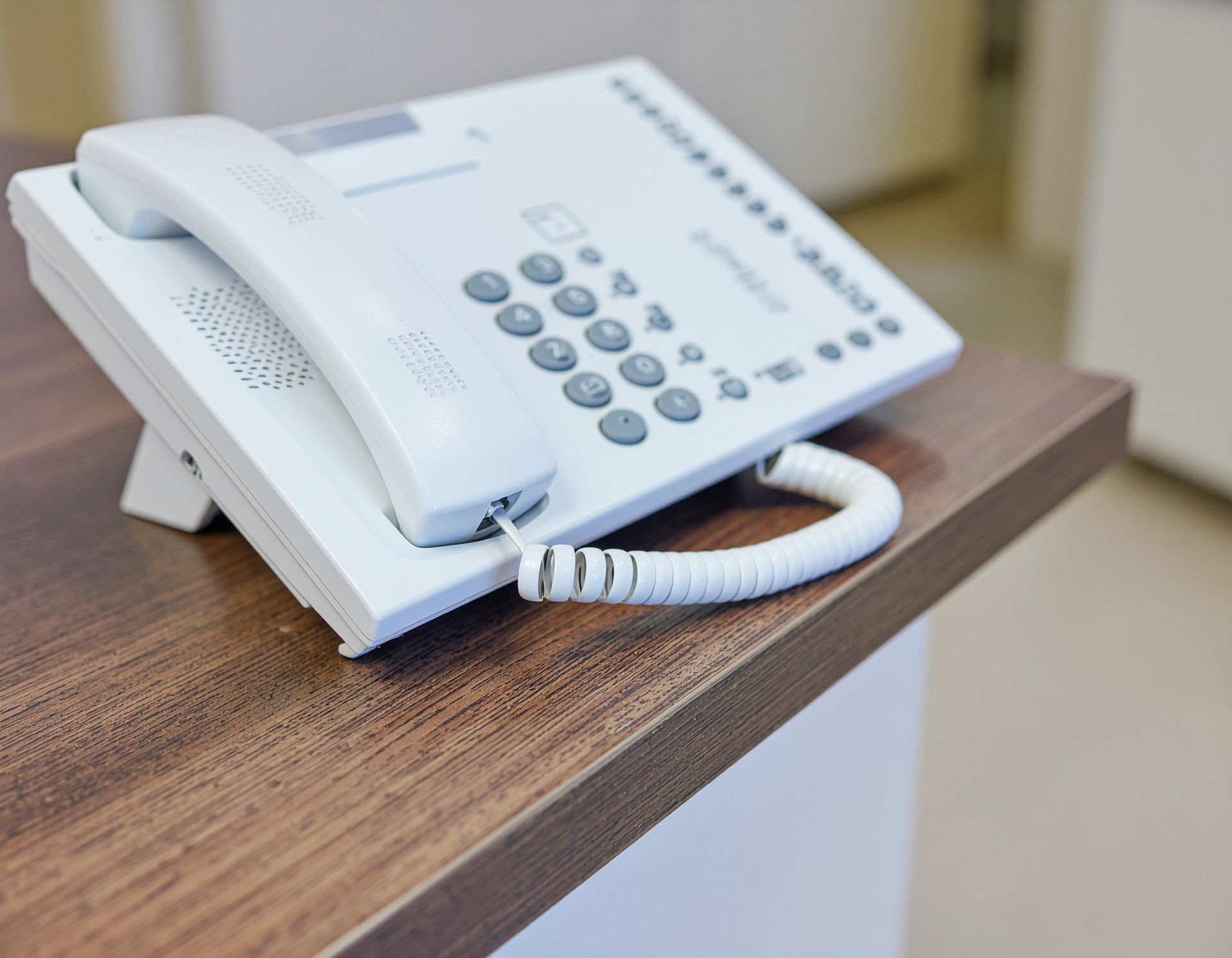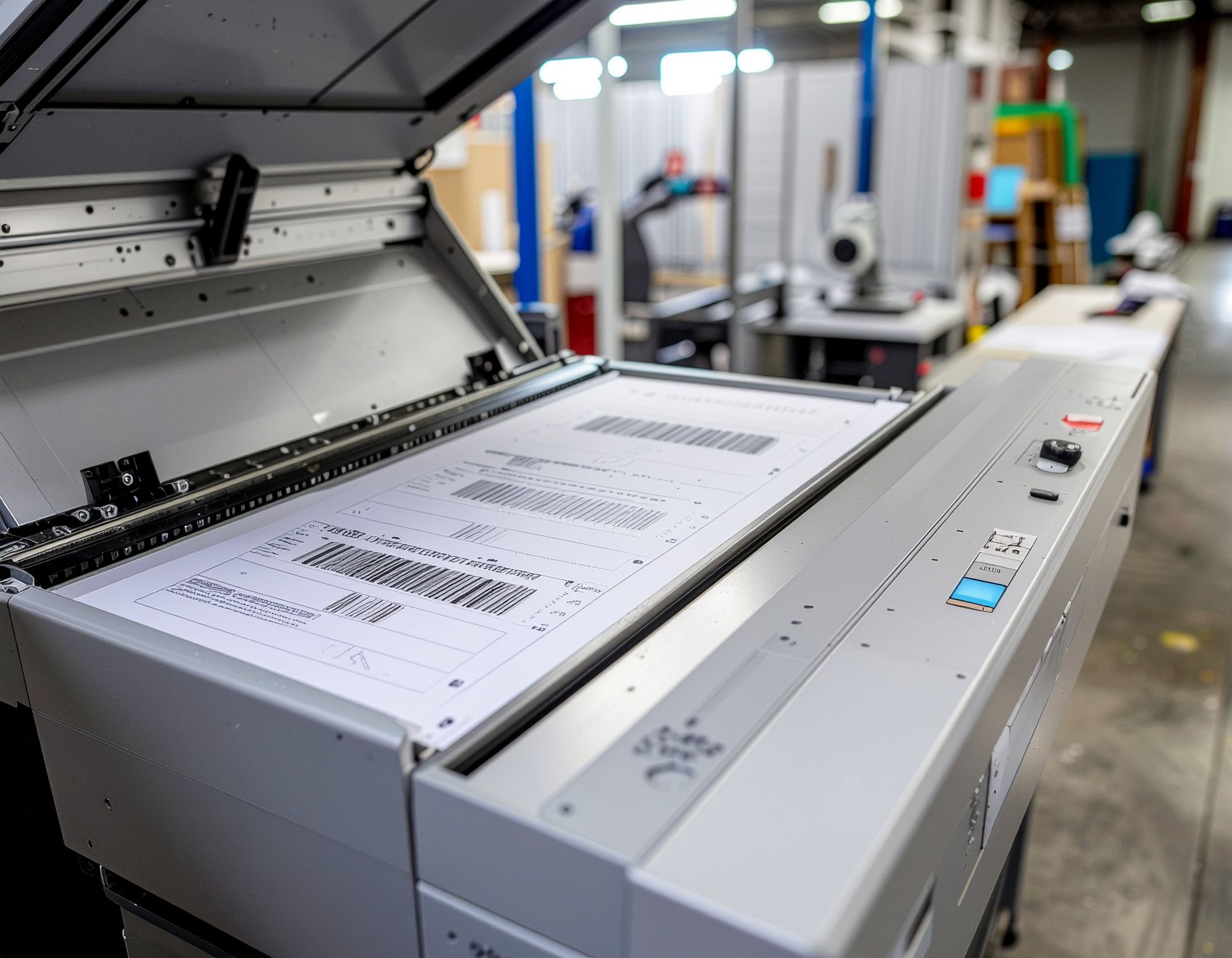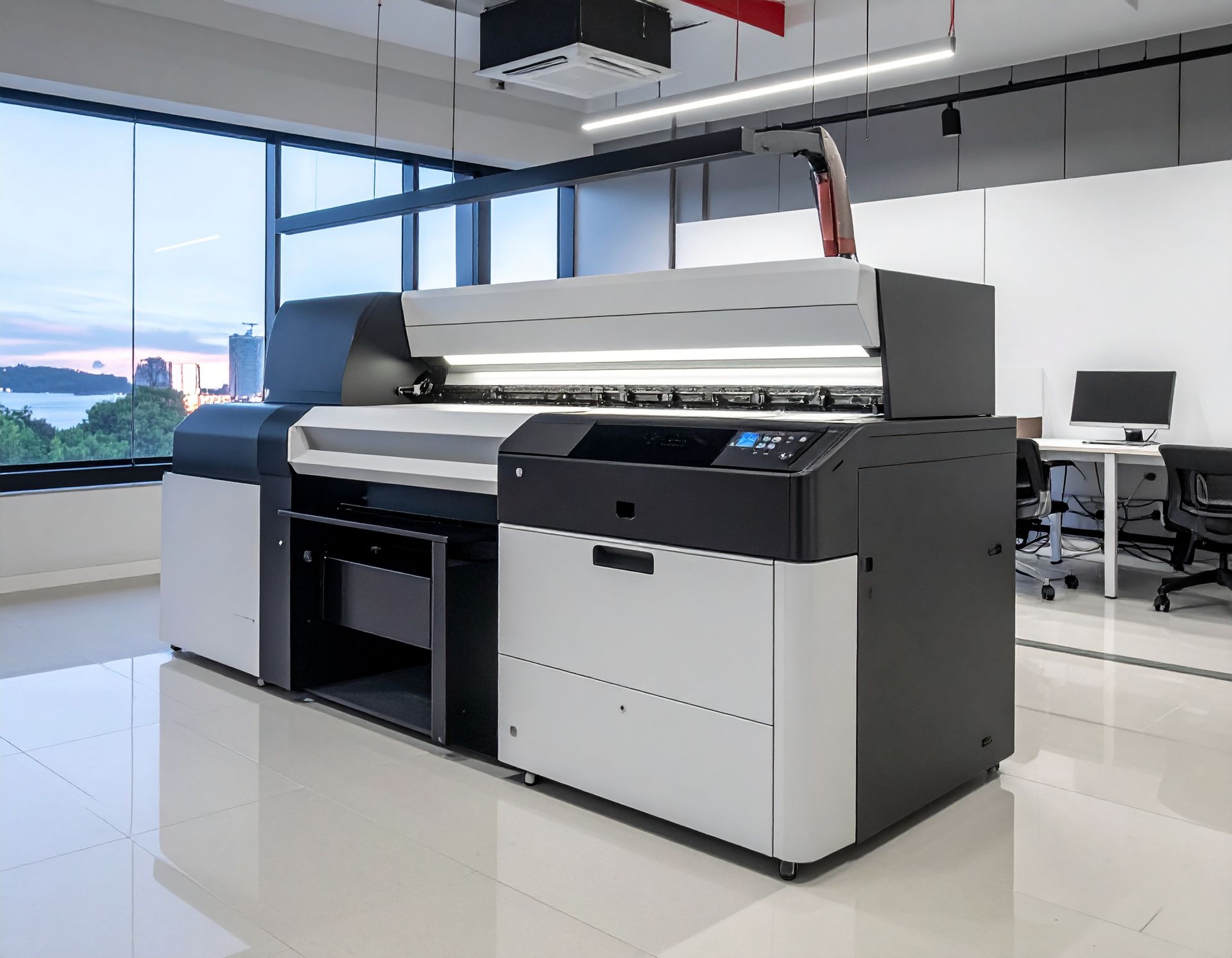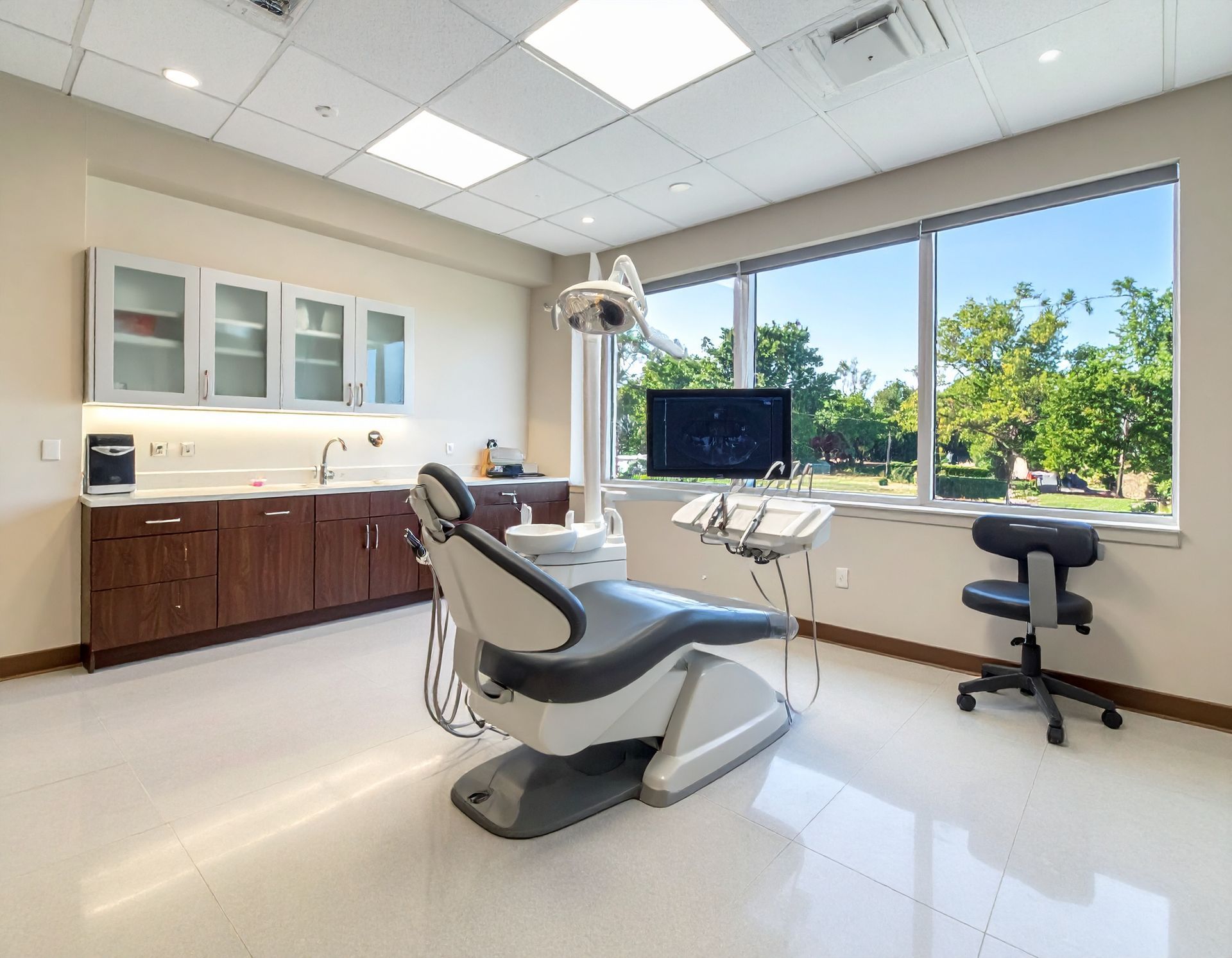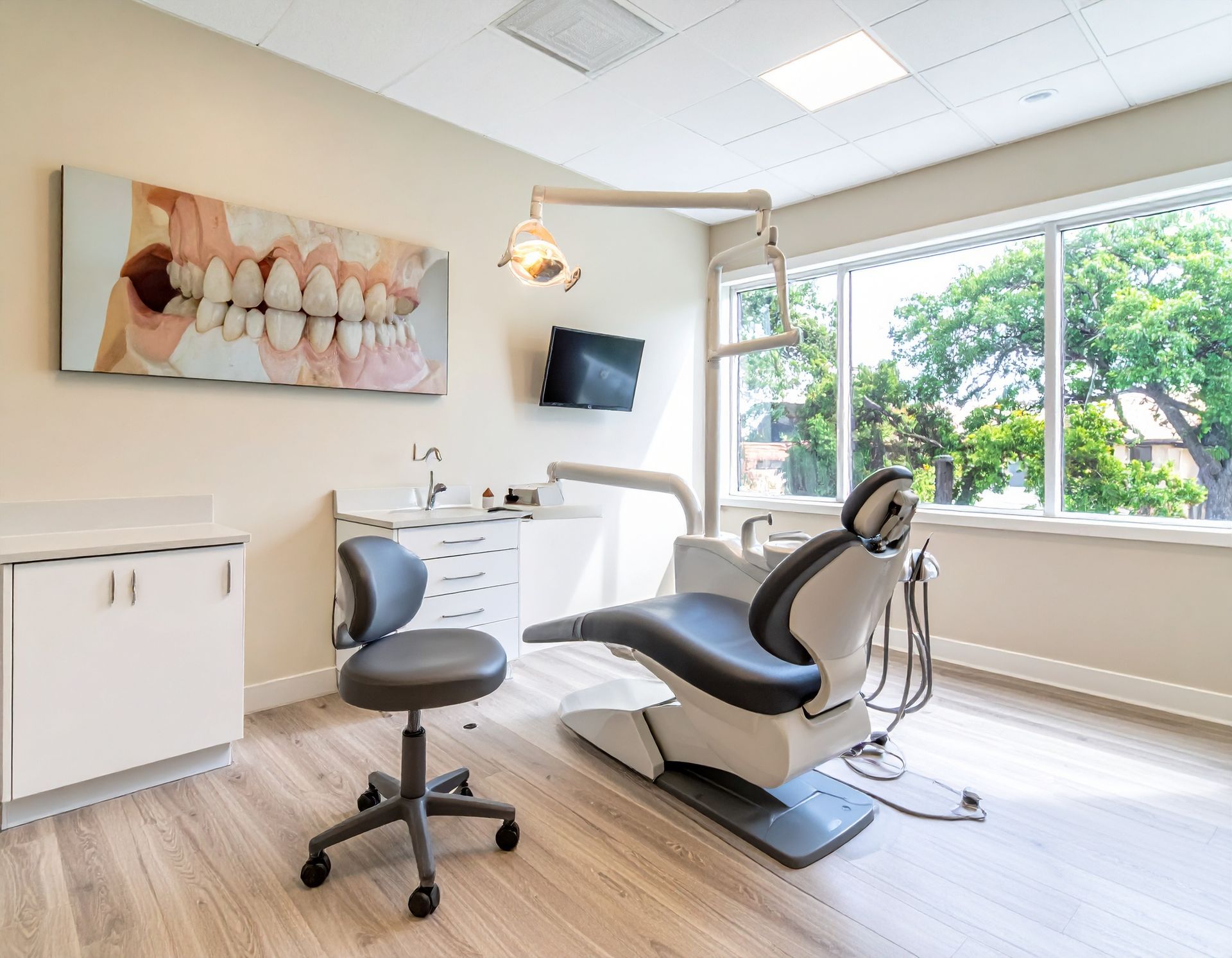Your Dental Practice HIPAA Compliance Checklist
Protecting Your Patients, Your Practice, and Your Peace of Mind
As a dental practice owner or office manager, HIPAA compliance can feel overwhelming. You're focused on patient care, running a profitable practice, and managing your team—not navigating complex federal regulations. That's where this checklist comes in.
At Allierad IT Solutions, we've helped Houston-area dental practices achieve and maintain HIPAA compliance for years. This practical guide breaks down what you need to protect your practice from costly penalties, data breaches, and the disruption that comes with non-compliance.
Understanding the Stakes
HIPAA violations aren't just paperwork issues—they carry serious financial and legal consequences. Penalties range from $100 to $50,000 per violation, with an annual maximum of $1.5 million. Beyond fines, a data breach can damage your reputation, erode patient trust, and expose you to lawsuits.
The good news? Most HIPAA compliance issues are preventable with the right systems and processes in place.
List of Services
-
1. Know Your RisksList Item 1
What you need to do:
- Conduct a formal security risk assessment of your practice at least once a year
- Document where patient information is stored, accessed, and transmitted
- Identify potential vulnerabilities in your systems and processes
- Create a plan to address the highest-priority risks first
Why it matters: You can't protect what you don't know about. A risk assessment reveals exactly where your practice is vulnerable and provides a roadmap for addressing those gaps. HIPAA regulations also require it—and it's the first thing auditors ask to see.
What Allierad does: We perform comprehensive HIPAA security risk assessments that identify vulnerabilities across your entire practice—from your servers to your staff habits—and deliver a clear action plan with timelines.
-
2. Control Who Accesses Patient InformationList Item 2
What you need to do:
- Give each staff member their own login credentials (no sharing passwords)
- Set up role-based access so employees only see the information they need for their job
- Remove access immediately when employees leave
- Enable automatic screen locks on all computers (no more than 5 minutes)
- Require multi-factor authentication (MFA) for Email, practice management software, and remote access
Why it matters: Most data breaches start with compromised passwords or unauthorized access. Controlling who can see patient information—and tracking who's viewing what—is one of your strongest defenses against both external hackers and internal mistakes.
What Allierad does: We configure your practice management software, computers, and systems with proper access controls and multi-factor authentication. We also help you develop clear policies for password management and user access.
-
3. Encrypt EverythingList Item 3
What you need to do:
- Ensure all patient data is encrypted when stored on servers, computers, laptops, and mobile devices
- Use encrypted communication for emails, messages, and file transfers containing patient information
- Encrypt backup files, whether they're stored onsite or in the cloud
- Verify that your practice management software (Dentrix, Eaglesoft, Open Dental, etc.) has encryption enabled
Why it matters: Encryption is like a lock on your filing cabinet—it makes stolen data useless to thieves. If a laptop is stolen or an email is intercepted, encrypted data remains protected. Many HIPAA violations occur because data wasn't encrypted.
What Allierad does: We implement enterprise-grade encryption across all your devices, systems, and communications. We also verify that your existing dental software is configured correctly with encryption turned on.
-
4. Back Up Your Data (And Test It)List Item 4
What you need to do:
- Run automated daily backups of all patient records and practice data
- Store backup copies both onsite and offsite (or in the cloud)
- Encrypt all backup files
- Test your backups quarterly to make sure you can actually restore your data
- Document your backup and disaster recovery procedures
Why it matters: Ransomware attacks on dental practices are increasing. If your systems are compromised, the only way to avoid paying a ransom and losing patient data is to have clean, working backups. Regular testing ensures your backups will work when you need them most.
What Allierad does: We set up automated, encrypted backup systems with monitoring to ensure backups run successfully. We also conduct quarterly restoration tests and provide documented proof that your disaster recovery plan works.
-
5. Keep Systems Updated and Protected
What you need to do:
- Install security updates and patches promptly on all computers, servers, and software
- Run professional-grade antivirus and malware protection on every device
- Use a properly configured firewall at your network entry points
- Monitor systems for suspicious activity and security threats
- Keep detailed logs of system access and security events
Why it matters: Hackers exploit outdated software and unpatched systems. The WannaCry ransomware attack that affected healthcare providers worldwide was successful because systems weren't updated. Regular patching closes these doors before criminals can walk through them.
What Allierad does: We provide 24/7 monitoring, automated patch management, enterprise-grade security software, and intrusion detection. We also maintain the audit logs required by HIPAA, which you'll need in the event of an incident.
-
6. Secure Your Physical Office
What you need to do:
- Lock server rooms and areas where sensitive information is stored
- Position computer screens so patients can't see them from the waiting areas
- Enable automatic screen locks when computers are idle
- Secure or encrypt portable devices like laptops and tablets
- Have procedures for safely disposing of old computers, hard drives, and printed records
Why it matters: HIPAA doesn't just cover digital security. A patient glancing at a screen in your office or someone walking off with an unlocked laptop can cause a compliance violation. Physical security is just as important as cybersecurity.
What Allierad does: We assess your office layout and equipment placement to ensure optimal efficiency. We also provide secure device disposal services that ensure old hard drives are properly wiped or destroyed, with documentation for your records.
-
7. Use HIPAA-Compliant Technology
What you need to do:
- Get signed Business Associate Agreements (BAAs) from every vendor who handles patient information (IT provider, cloud services, billing company, imaging services, etc.)
- Verify that your practice management software, Email, and cloud services are HIPAA-compliant.
- Use secure patient communication tools—not regular text messages or personal Email—for discussing treatment or sending health information.
- Review and renew BAAs annually.
Why it matters: Under HIPAA, you're responsible for how your vendors handle patient data. If they have a breach, you can be held liable. A Business Associate Agreement legally requires them to protect patient information and notify you of breaches.
What Allierad does: As your IT partner, we maintain an active BAA with your practice. We also help you identify all other vendors who need BAAs, ensure proper agreements are in place, and configure your technology platforms for HIPAA compliance.
-
8. Train Your Team
What you need to do:
- Provide HIPAA training to all employees upon hire and annually thereafter.
- Cover topics like password security, phishing emails, handling patient information, and what to do if they suspect a breach.
- Document who completed training and when
- Update training when you change technology or procedures
- Run periodic phishing simulations to test awareness.
Why it matters: Your staff is your first line of defense—and your most significant vulnerability. Most breaches involve human error, such as clicking a phishing email, losing a device, or accidentally emailing patient data to the wrong person. Regular training dramatically reduces these risks.
What Allierad does: We provide customized HIPAA training for dental practices, including engaging online modules, phishing simulations, and tracking to ensure everyone stays current. We also handle the documentation requirements for audits.
-
9. Have an Incident Response Plan
What you need to do:
- Create a written plan for responding to security incidents and potential breaches
- Assign clear roles: who investigates, who notifies patients, who contacts authorities
- Understand the breach notification timeline (you have 60 days maximum to notify affected patients)
- Know when you must inform the Department of Health and Human Services and the media
- Document every security incident, even if it doesn't become a reportable breach
Why it matters: When a breach happens, you don't have time to figure out what to do. A documented plan ensures that you respond quickly, correctly, and within the legally mandated timeframes. Failing to report a breach in a timely manner can result in higher penalties than the breach itself.
What Allierad does: We help you create a comprehensive incident response plan tailored to your practice. In the event of an incident, we provide immediate support to contain the situation, investigate its scope, and guide you through the notification requirements.
-
10. Document Everything
What you need to do:
- Keep copies of your risk assessments, security policies, and procedures
- Maintain all Business Associate Agreements
- Track employee training records and attestations
- Document system configurations, security settings, and backup test results
- Conduct quarterly reviews of who has access to what systems
- Review and update all policies annually
Why it matters: In a HIPAA audit or investigation, "we do it, but we don't have it written down" isn't acceptable. Documentation proves you're taking security seriously and maintaining compliance. It also helps you stay organized and consistent as your practice grows.
What Allierad does: We maintain a compliance evidence repository for all our managed IT clients. We document system configurations, track policies and procedures, and conduct quarterly access reviews—keeping Everything organized and audit-ready.
Your Practice Deserves Enterprise-Level Protection
Running a compliant dental practice shouldn't keep you up at night. With the right technology partner, HIPAA compliance becomes a manageable part of your operations rather than a constant worry.
At Allierad IT Solutions, we specialize in helping Houston-area dental practices like yours achieve and maintain HIPAA compliance. Our team handles the complex technical work, allowing you to focus on patient care and practice growth.
Here's what we do for dental practices:
- Assessment & Planning: We conduct thorough security risk assessments and create clear, prioritized action plans that fit your budget and timeline.
- Technology Implementation: We configure and manage your practice management software, security systems, encryption, multi-factor authentication, and access controls in accordance with HIPAA standards.
- 24/7 Monitoring & Protection: Our team monitors your systems around the clock for threats, manages security updates, and responds immediately to potential incidents.
- Backup & Recovery: We implement and test encrypted backup systems to protect you against ransomware, hardware failure, and disasters.
- Vendor Management: We handle Business Associate Agreements, work directly with your software vendors, and coordinate with your EHR, billing, and imaging providers.
- Training & Support: We provide ongoing HIPAA training for your staff, run phishing simulations, and offer responsive help desk support for your team.
Why Dental Practices Choose Allierad
✓ HIPAA-Certified Expertise: We're certified HIPAA compliance specialists who understand both the regulations and the unique needs of dental practices.
✓ Local Houston Team: We're based in Houston and serve practices throughout the greater Houston area with onsite support when you need it.
✓ Fixed, Predictable Pricing: No surprise bills. You'll know exactly what your IT costs each month.
✓ Comprehensive Service: From IT systems to phone systems, security cameras, and access control, we handle all your technology needs under one roof.
✓ Peace of Mind: Sleep better knowing your practice is protected, compliant, and backed by a team that's always available.
About This Checklist
This checklist is based on the HIPAA Security Rule (45 CFR Parts 160, 162, and 164) and guidance from the HHS Office for Civil Rights. While we've simplified the technical language for practice owners and managers, all requirements reflect current federal regulations for protecting electronic protected health information (ePHI). This guide is for informational purposes and doesn't constitute legal advice. Consult with your attorney and compliance specialist for practice-specific guidance.
Ready to Protect Your Practice?
Don't wait for a breach or audit to address HIPAA compliance. Let Allierad IT Solutions assess your current security posture and show you exactly what needs attention.




